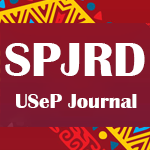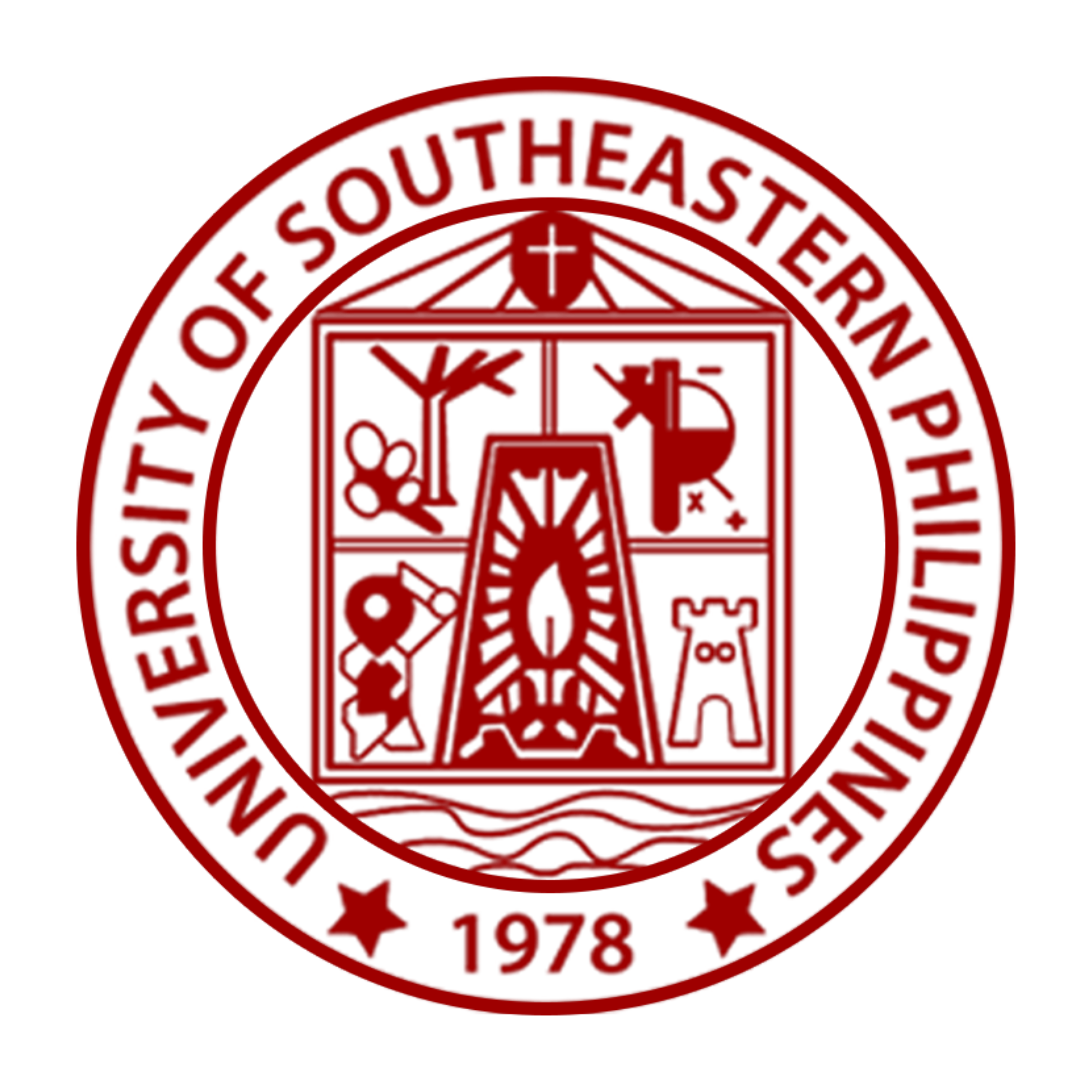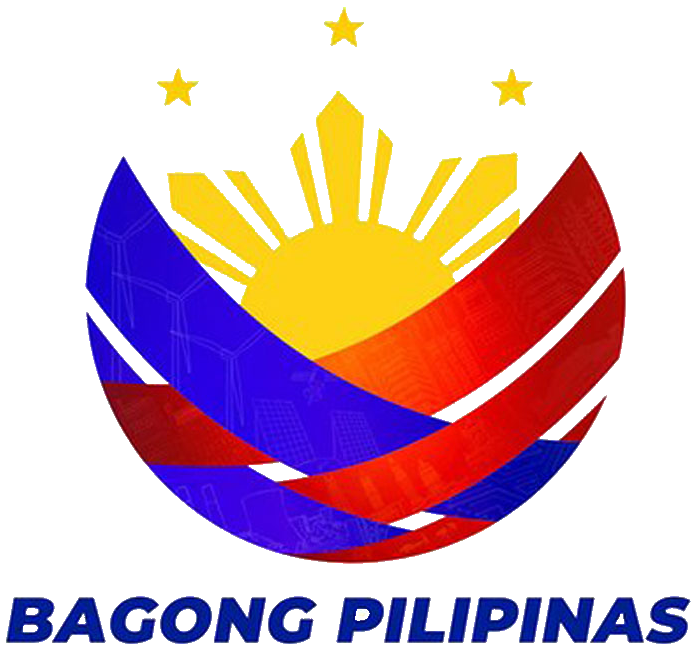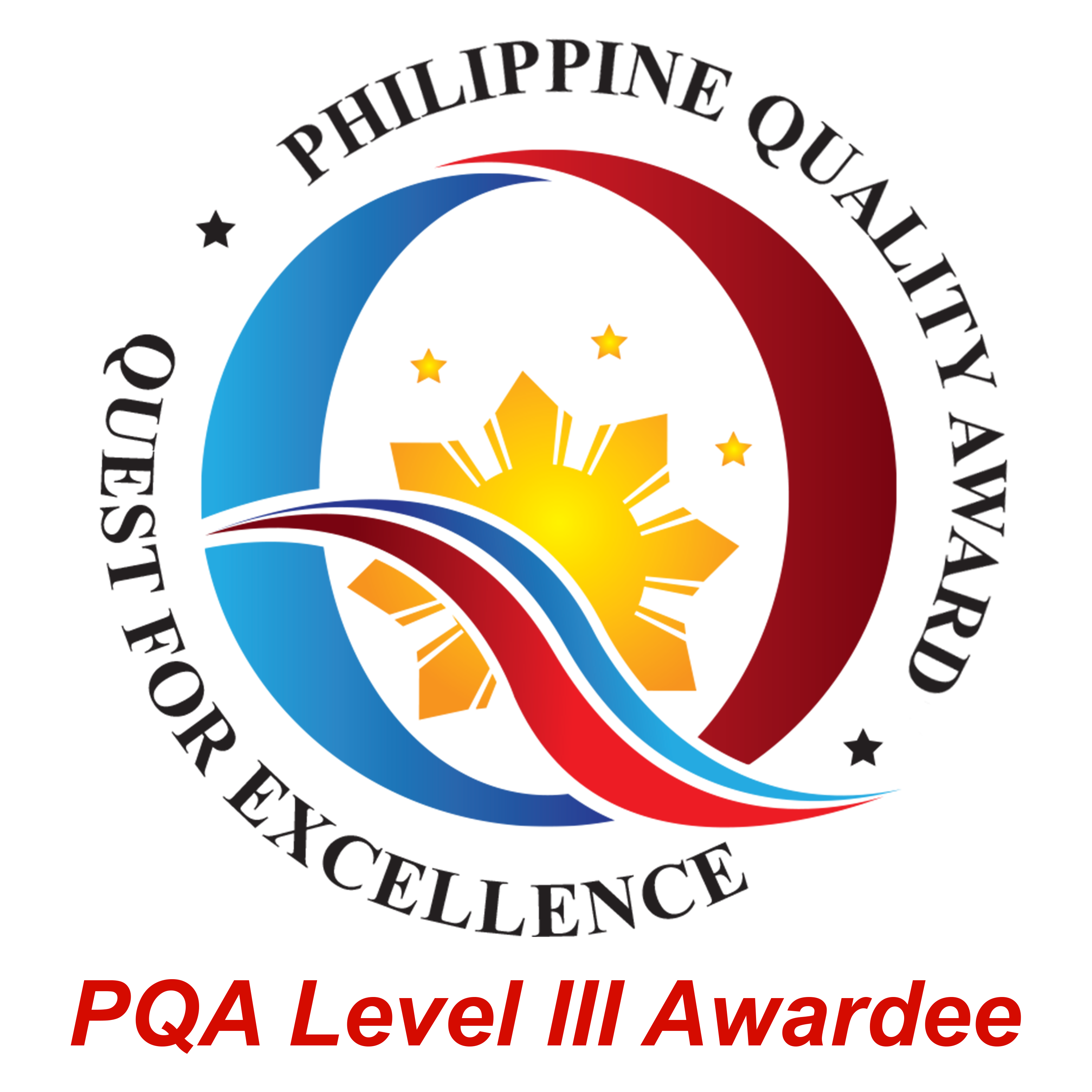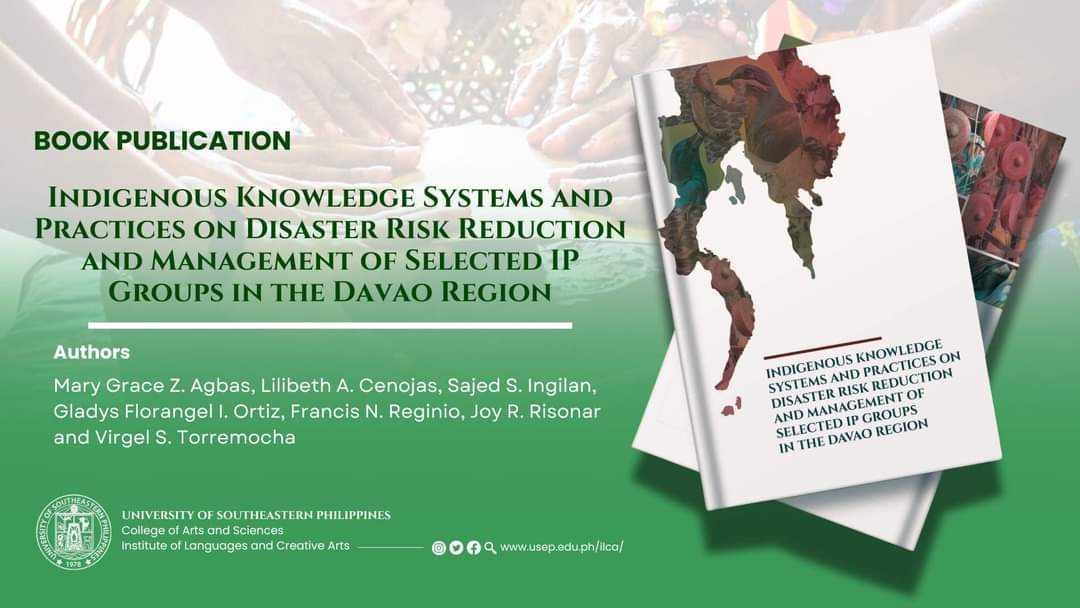
This book is a recognition of the voice of the Indigenous Peoples in the Davao Region, Philippines, aiming to be a valuable resource for various stakeholders to promote better disaster management, particularly in the face of climate change.
Through the Commission on Higher Education grant, we documented the indigenous knowledge systems and practices on disaster risk reduction and management of the eight IP groups in the Davao Region. By doing fieldwork in August 2021 up to July 2022 under the supervision of the USeP Mindanao Center for Policy Studies, we were exposed to the time-tested knowledge of the Ata of Paquibato District in Davao City, Bagobo-Klata of Sirib in Calinan, Davao City, Bagobo-Tagabawa of Sibulan in Sta. Cruz, Davao del Sur, Kagan of Banaybanay in Davao Oriental, Mansaka of Tagum City in Davao del Norte, Matigsalug of Marilog District in Davao City, Manobo of Jose Abad Santos in Davao Occidental, and Sama of the Island Garden City of Samal in Davao del Norte. We sincerely thank them for graciously accommodating our requests.
Efforts in gathering our data are due to the generous hands of our partners in the National Commission on Indigenous Peoples: Regional Director Mumar M. Mamukid; Technical Management Services Division Chief Shirley B. Iguianon; Mr. Indalesio L. Diano and Ms. Merry Jane T. Kinoc of NCIP Davao del Sur; Ms. Judy Arlene Soriano, Mr. Cristito D. Ingay, and Atty. Ronnie Bolutano of NCIP Davao City; Mr. Roger S. Lumbin and Ms. Lyn A. Balanza of NCIP Davao del Norte; Atty. Leonor T. Oralde-Quintayo and Ms. Caroline Pascual of NCIP Davao Occidental; Atty. James Ian A. Generale and Ms. Laarni M. Pasion of NCIP Davao Oriental. These fellow workers in the government extended their service to us in times of a health crisis, a testament to the true meaning of public service.
Writing this book became meaningful when we received the scholarly comments of the two international experts. We are indebted to Dr. Rodney C. Jubilado of the University of Hawaii at Hilo and Dr. Aurelio S. Agcaoili of the University of Hawaii at Manoa who critically reviewed our work. Their productive suggestions significantly helped in the publication of this material.
Equally inspiring too are the words of Dr. Hanafi Hussin of the Universiti Malaya in Malaysia, Dr. Nasirin Abdillah of the Universiti Teknologi MARA in Malaysia, and Dr. Takashi Tsuji of International Research Centre for Intangible Cultural Heritage in the Asia-Pacific Region (IRCI) in Japan, whom we requested for the blurb.
Our Team would also like to recognize Dr. Leo D. Rayon, Jr. of the Davao del Norte State College, who stood with us during the editing of the book, and Marian Buenvenida, Jeremiel Combatir, Arnold Diano, Darryl Imperial, Joveth Montana, Tessa Mae Tano, Faidah Sasang, and Charisse Sumalinog, our graduate students in the College of Arts and Sciences, who patiently transcribed our interviews with the informants. Credit also goes to Dr. Mervin G. Gascon, former Director of the USeP International Affairs Division , who lobbied this project to CHED, and interviewed the Kagan informants.
In the implementation of the Project, worth mentioning are the unparalleled dedication of USeP non-teaching personnel, namely, Ms. Ingrid Y. Gallogo, Ms. Jessa Joy C. Odog, Mr. Crisjunero L. Tortal, Mr. Danilo C. Piator, and Mr. Rhum June A. Alaba, and the creative skills in book designing of Mr. Marvin Lagmay, Ms. Hannah Mae G. Lolong, and Mr. Rey Kenneth John G. Marces.
Our immense gratitude goes also to the officials of USeP led by President Lourdes C. Generalao for their immeasurable support in the conduct of this Project, and of course to Senator Loren Legarda for funding the printing of this book.
With humility and graciousness, we thank all the people who have contributed to giving voice to the Indigenous Peoples in the Davao Region, thereby supporting us in realizing our vision of having inclusive, safe, resilient and sustainable communities.
Sajed S. Ingilan
Project Leader
Pubmat by USeP ILCA



